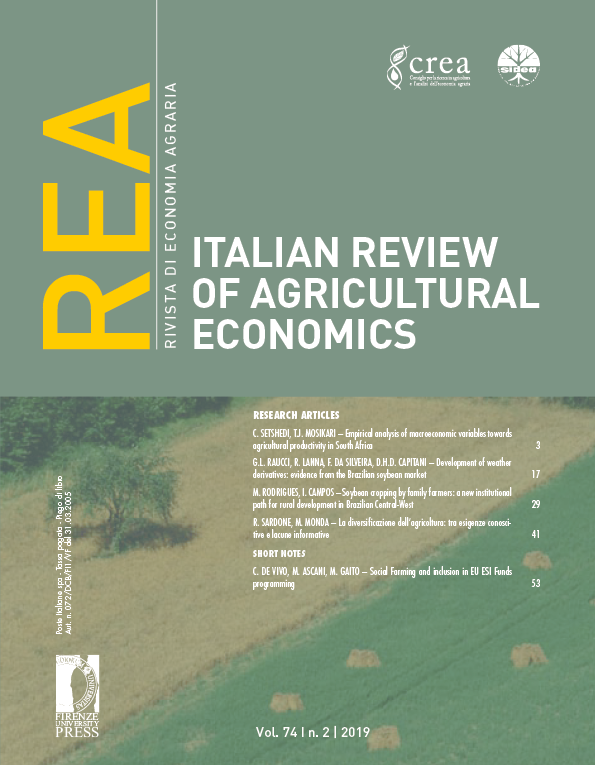Published 2019-06-15
Keywords
- CO2,
- crescita ecosostenibile,
- consumi energetici,
- urbanizzazione
How to Cite
Abstract
The environmental sustainability is probably one of the most controversial topics of national policy agendas. The needs to combine economic growth and well-being, have forced governments to introduce tools for reducing CO2 emission and avoiding climate change. This paper aims to assess the effectiveness of these measures in the 1990-2014 period for a sample of 188 countries; and to analyze the determinants of CO2 in the 2000-2014 period for a sample of 175 countries. The results suggest that i) richest countries have a GDP elasticity of CO2 greater than that of poorest countries; and ii) GDP, energy consumption, urbanization, agricultural development, tourism and depletion of natural resources are directly correlated to CO2, while forest area, alternative energy, trade openness and FDI inflows are inversely related to CO2.


